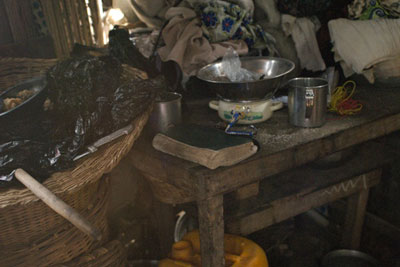This is part three in our four part series – The Case for Compassion Togo
Christianity in Togo dates back to the mid-1800s when the Methodist and Presbyterian denominations organized churches in the country. They were followed by the Catholic Church about 40 years later and today are joined by churches affiliated with the Assemblies of God, Pentecostals, Baptists, Lutherans and many other denominations. According to available statistics, Togo is 29 percent Christian.
In recent decades, several “umbrella” organizations have formed that include church leaders from the various denominations who desire to work together. In the past, there has been little-to-no collaboration among the denominations, but leaders are rising up who wish to bring unity and strength to the Church so that they might in turn more effectively evangelize and influence their country.
Many of these church leaders share anecdotal evidence that the church is currently growing at a more rapid rate than in past times. Many have also identified their ministry to children as a universally weak area among the churches, and at the same time, recognize a need for a greater focus and strength of purpose if they are to influence these young people who are future of their country.

Increasingly, churches in poor areas (which are by far the majority of churches in the country) are recognizing that if they are to be relevant within their communities, they must address more than only the spiritual state of the people. Some churches simply take up offerings and use the funds to try to meet the various needs that come to their attention. Others are more structured, asking people to bring extra clothing, shoes, food and school supplies they might have so that they can be redistributed to those with the most severe need.
A church in Lome shows films with a positive message after school to give children a place to go so they won’t loiter in the streets. Thanks to the vision of a retired doctor, this same church also runs a clinic where they not only treat those who need medical attention in their own community but also train volunteers so that they can go out and minister through medicine in nearby rural communities.
Everywhere there are children, so many children, most coming from single-parent homes and many of whom have little adult influence on their lives. Many churches desire to find ways to improve and expand their children’s ministries, want to attempt to provide more structure and even have begun looking for ways to train those who work with the children so they might provide better guidance.
There is anecdotal evidence that these ministries are positively impacting these churches’ ability to witness to and impact their communities. This may be seen both in the way the church leaders are received and welcomed when they visit homes in the communities, and also in the comfort level that neighbors — and especially the children — feel to come to the church.
TOMORROW: Putting Faces to the Statistics
Story and photo by Phoebe Rogers







1 Comment |Add a comment
I’m all goosebump-ly. It sounds as if the Church in Togo is acting like The Church!
Do you know how honored I feel to be associated with a ministry like Compassion? This is also the Church being the Church, as we reach out and come alongside churches like these that you’ve described in Togo. Thank you, Father, for calling me to to a ministry of compassion, with Compassion!